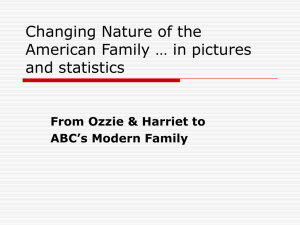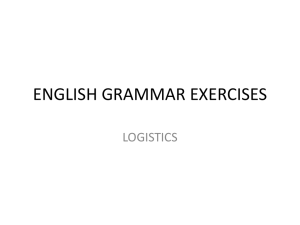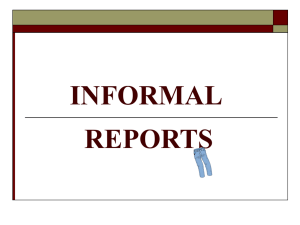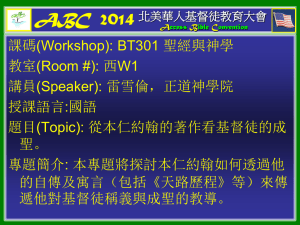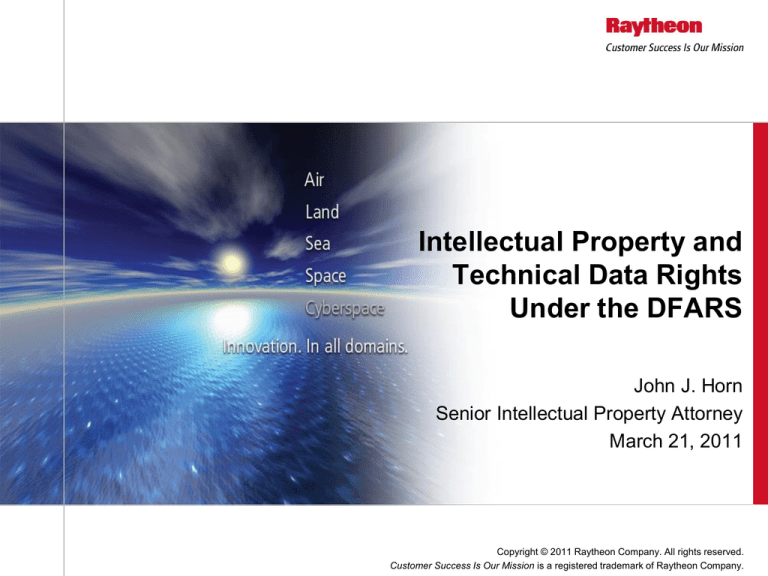
Intellectual Property and
Technical Data Rights
Under the DFARS
John J. Horn
Senior Intellectual Property Attorney
March 21, 2011
Copyright © 2011 Raytheon Company. All rights reserved.
Customer Success Is Our Mission is a registered trademark of Raytheon Company.
The IP Situation
A Problem: A major change in government policy and tactics on
Intellectual Property (IP) rights.
– In general, the government is seeking broad IP rights
Emphasis is now on no limitations on re-use of data and competitive re-procurement
A shift in procurement philosophy, methodologies/approaches and business processes
– Certain government agencies are particularly aggressive
– Both new procurements and older “Data Rights” affected
The Impact: Potential loss of key competitive advantages afforded by IP
rights in IR&D funded technology.
– IP allows us to legally protect technologies we develop with our own funds
– Should translate into exclusivity and improved margins across products
Not all situations allow for such legal protections but many do
Must be actively managed to extract value from the company’s technology investments
The Solution: Greater knowledge and awareness of IP issues, improved
processes, better implementation and more process discipline.
– Identification, Handling and Marking procedures for establishing and protecting
IP Rights
ver. 1
Page 2
System Concepts
IP: IP refers to various legal constructs that allow for different
kinds of protection appropriate to different types of material
– 4 classic types of IP: Patents, Copyrights, Trade Secrets, and Trademarks
– Each type creates a defined set of legal rights for the IP owner and has an
associated set of steps and requirements to come into (and stay in) existence
– The same item can occasionally be covered by multiple types of IP
– Unless one or another type of IP applies, technology is unprotected.
Important differences in the government contracts context
versus the commercial arena
– Patents limited by “Authorization and Consent” (28 USC 1498)
– Copyrights and Trade Secrets merged under the FAR/DFARS
to create a different system for Data and Software “protection”
Technical Data Rights (252.227-7013)
Rights in Computer Software (252.227-7014)
SBIR Rights (252.227-7018)
ver. 1
Page 3
System Concepts
Under most cases Data and Software Rights are probably the single most
important type of IP for Defense Contractors (and the other business units
as well)
– The primary focus of this course
– Several requirements must be fulfilled and active steps taken
Multi-step efforts extending over a lengthy period usually required.
Collaboration of several different departments usually required.
Failure to fulfill any of the requirements or take the necessary steps to
achieve Technical Data Rights protection generally results in a forfeiture
of the Company’s rights.
ver. 1
Page 4
System Concepts
Course Objective: It’s important for all the Participants in
Technical Data Rights efforts to understand the overall
concepts and basic procedures involved for the Company to
be able to successfully establish a Defense Contractor’s
rights on a consistent basis.
Final Point:
IP can be an important source
of competitive advantage.
Understand it and use it.
ver. 1
Page 5
What is Intellectual Property?
ver. 1
Page 6
What is Intellectual Property? – Trade Secrets
• Covers traditional scientific secrets,
confidential financial data and business
information.
• Requires a PIA or NDA to protect when
shared with other private companies.
• Protected when in Government hands
under the Trade Secret Act, Procurement
Integrity Act, Economic Espionage Act,
and other laws.
• Traditional marking: COMPANY
PROPRIETARY, COMPANY SECRET,
COMPANY CONFIDENTIAL
ver. 1
Page 7
What is Intellectual Property? – Patents
• Protect functional aspects of new or
improved technology.
• Issued by the Government after an
involved Examination process.
• Require technological novelty – new
and different.
• Prohibit others from making, using,
or selling the technology covered by
the patent claims and allow royalties
for infringement.
ver. 1
Page 8
What is Intellectual Property? – Patents
• Can have a broad sweep, depends on
the scope of the patent claims.
• Under the FAR Authorization and
Consent clause contractors are
empowered to infringe the patents of
other private contractors.
• The only remedy the patent holder has is
to bring a claim against the U.S.
Government for royalties.
• Traditional marking: US Patent No.
9,999,999
ver. 1
Page 9
What is Intellectual Property? – Patents
From the FAR:
52.227-1 Authorization and Consent.
As prescribed in 27.201-2(a)(1), insert the following clause:
Authorization and Consent (Dec 2007)
a)
The Government authorizes and consents to all use and manufacture, in
performing this contract or any subcontract at any tier, of any invention
described in and covered by a United States patent—
(1)
(2)
Embodied in the structure or composition of any article the delivery of which is
accepted by the Government under this contract; or
Used in machinery, tools, or methods whose use necessarily results from compliance
by the Contractor or a subcontractor with (i) specifications or written provisions
forming a part of this contract or (ii) specific written instructions given by the
Contracting Officer directing the manner of performance. the entire liability to the
Government for infringement of a United States patent shall be determined solely by
the provisions of the indemnity clause, if any, included in this contract or any
subcontract hereunder (including any lower-tier subcontract), and the Government
assumes liability for all other infringement to the extent of the authorization and
consent hereinabove granted.
(Note: emphasis added)
ver. 1
Page 10
What is Intellectual Property? – Copyrights
• Cover creative works of authorship.
• Government-granted, long-term right to
•
•
•
•
prevent others from copying,
distributing, preparing derivative works,
displaying, etc.
Covers specific creative expressions of
ideas, but not functional aspects; more
about form than technical content.
Books, articles, music, drama,
pictures, graphics, audio-visual works,
computer program code.
Useful for but can be narrow.
Traditional marking: © 2011 ABC
Company
ver. 1
Page 11
What is Intellectual Property? – Tech Data/Software
• Applies to Technical Data or Computer
Software specifically required by contract
to be delivered (e.g. under a CDRL) to
the U.S. Government [see DFARs
252.227-7013,7014,7018].
• The Government always gets a license to
use Data or Software delivered under a
Government contract.
• The key question is the scope of that
license and the rights the Government
receives to use the Data or Software for
activities such as re-procurement.
ver. 1
Page 12
What is Intellectual Property? – Tech Data/Software
• Technical Data Rights and Computer Software
•
•
•
•
Rights are all about the rights the U.S.
Government gets – broad or narrow.
Contractor retains ultimate ownership and the
right to use and reuse the Data.
The DFARS provide a special system for
determining these rights based primarily on
development funding.
This system is a thing onto itself different from
other areas of IP law.
The system applies only and exclusively to
Technical Data and Computer Software
delivered under U.S. Government contracts.
ver. 1
Page 13
What is Intellectual Property? – Tech Data/Software
• Determined by the source of funds
(color of money) used to develop the
item, component, or process.
• Limited Rights (for Technical Data)
or Restricted Rights (for Software)
• Government Purpose Rights (GPR)
• Unlimited Rights
• Specifically Negotiated Rights
ver. 1
Page 14
What is Intellectual Property? – Tech Data/Software
• Government gets Limited Rights if the
technology was developed exclusively at
private expense.
• Government gets GPR if data was
developed with both private and public
funds (mixed funding).
• Government gets Specially Negotiated
Rights if it was negotiated and originally
agreed to have special rights apply.
• Government gets Unlimited Rights if it
was developed exclusively at
Government expense (the default case).
ver. 1
Page 15
What is Intellectual Property? – Tech Data/Software
• Limited Rights prohibit the sharing of
data with other defense contractors.
• GPR allows the Government to share
data for all government purposes, but
not commercial purposes.
• Scope of Specifically Negotiated Rights
is unknown until negotiated (but can
never be less than Limited Rights).
• Unlimited Rights allow the Government
to use data for ANY purpose
whatsoever.
ver. 1
Page 16
Why Protect Technical Data Rights / Computer
Software Rights?
Can restrict the U.S. Government from
revealing or using your technology for
competitive re-procurement
ver. 1
Page 17
Who Protects Technical Data Rights / Computer
Software Rights?
ver. 1
Page 18
Technical Data Rights /
Computer Software Rights
TIMELINE
Copyright 2010-2011 Raytheon Company
When Protect Technical Data Rights / Computer
Software Rights?
ver. 1
Page 20
When Protect Technical Data Rights / Computer
Software Rights?
ver. 1
Page 21
Protect Technical Data Rights / Computer Software
Rights
Different funding results in different US
Government rights in Technical Data and
Software “delivered” under a Government
Contract:
• If developed exclusively with private
expense: Limited Rights
• If developed exclusively with
Government funds: Unlimited Rights
• If developed with Mixed Funding: GPR
• Necessary to plan ahead to develop “key”
technologies exclusively at private expense.
ver. 1
Page 22
Protect Technical Data Rights / Computer
Software Rights
Factors to consider:
• How important is it to keep this
Technical Data or Software out of our
competitors’ hands.
• Will the product or prototype be easily
reverse engineered.
• Whether Technical Data or Software is
publicly available or has been previously
released without restriction.
ver. 1
Page 23
Protect Technical Data Rights / Computer
Software Rights
More factors to consider:
• Whether Data or Software is form, fit, or
function data or necessary for installation,
operation, maintenance, or training.
• Will we have enough Private funding to
continue private funding of the
development effort all the way through to
the “Workability” stage.
ver. 1
Page 24
Protect Technical Data Rights / Computer
Software Rights
TECHNICAL DATA
• Limited Rights in Technical Data depend on
funding the Development of Items,
Components, or Processes (ICPs) to which
the Data relates through to Workability
EXCLUSIVELY at private expense.
• ICPs defined according to the concept of
“Segregability” which can be selected to be
at the lowest practical level.
• Some combination of functional
distinctiveness and ability to physically
separate parts required for Segregability.
ver. 1
Page 25
Protect Technical Data Rights / Computer
Software Rights
COMPUTER SOFTWARE
• Restricted Rights in Computer Software
depend on funding the Development of
Software modules through to Workability
EXCLUSIVELY at private expense.
• Software modules defined according to the
concept of “Segregability” which can be
selected to be at the lowest practical level.
• Some degree and combination of functional
distinctiveness and ability to physical
separate the code modules required for
Segregability.
ver. 1
Page 26
Protect Technical Data Rights / Computer
Software Rights
• Concepts of Workability and
Segregability are linked.
• It is a contractor’s advantage to
Segregate in defining ICPs and
Software modules to the level at which
key ICPs and modules are developed
exclusively at private expense.
ver. 1
Page 27
Protect Technical Data Rights / Computer
Software Rights
Development and Workability have slightly
different definitions for Technical Data
ICPs and Computer Software:
• Technical Data Workability meansthe Data-related ICP constructed or
practiced and analyzed and tested
sufficiently to demonstrate a high
probability of working as intended.
• Computer Software Workability meansthe Software module successfully
operated in a computer and tested to the
extent sufficient to demonstrate that it can
reasonably be expected to perform its
intended purpose.
• Careful simulation may demonstrate
Workability.
ver. 1
Page 28
Protect Technical Data Rights / Computer
Software Rights
ver. 1
Page 29
Protect Technical Data Rights / Computer
Software Rights
• Create, save, and maintain:
• Technology development results and
and concurrent financial records;
• Lab notebooks illustrating development
work;
• Dated engineering progress reports;
• Dated schematics of prototype designs;
• Corresponding charge records for
indirect accounts;
• Produce any other type of record that helps
tell the story of technology development and
related indirect charges.
ver. 1
Page 30
Protect Technical Data Rights / Computer
Software Rights
• Submit at time of contract formation.
• Provides summary listing of all restrictions
affecting Technical Data and Software
Deliverables under the contract.
• Notifies Government of Company’s Limited
Rights and GPR claims.
• If possible verify the basic facts supporting
the assertions to assure compliance.
ver. 1
Page 31
Protect Technical Data Rights / Computer
Software Rights
• Prime contractors required to request
subcontractors to provide their Data and
Software Assertions.
• Subcontractor Assertions need to be added
to the Prime’s Assertion Table and thereby
flowed through to the Government.
• The Prime contractor is not responsible for
the accuracy of subcontractor Assertions
(except maybe in extreme cases where they
are very clearly in error).
ver. 1
Page 32
Protect Technical Data Rights / Computer
Software Rights
SAMPLE ASSERTION TABLE
Technical Data/Computer Software to be
Furnished with Restrictions
Basis for
Assertion
Asserted Rights
Category
Name of Person
Asserting
Restrictions
1) Sensor Array Temperature Compensation Developed exclusively
Circuit, All materials describing the circuit such as at Private Expense
schematics and performance data
Limited Rights
ABC Company
2) Flight Stabilization Software
Developed exclusively
including Feed Forward
at Private Expense
Source Code and all Flowcharts
3) Two Stage Long-Range/Short-Range Thrust Developed exclusively
Deflectors
at Private Expense
Schematics and all other related Technical Data
Restricted Rights
XYZ Supplier Company
Limited Rights
ABC Company
ver. 1
Page 33
Protect Technical Data Rights / Computer
Software Rights
• Markings on Deliverables appear on
transmittal document AND each applicable
page exactly as shown in the Regulations.
• Portions of things subject to Restrictions
should be identified by underscoring, circling,
or call-outs.
• Deliverables Categories:
• Limited Rights (Technical Data)
• Restricted Rights (Software)
• Government Purpose Rights (GPR)
• Unlimited Rights
• Specifically Negotiated Rights
ver. 1
Page 34
Protect Technical Data Rights / Computer
Software Rights
SAMPLE TECHNICAL DATA LEGEND
From DFARS 252.227.7013(f)
LIMITED RIGHTS
Contract Number ___________
Contractor Name ___________
Contractor Address _________________
The Government’s rights to use, modify, reproduce, release, perform, display,
or disclose these technical data are restricted by paragraph (b)(3) of the Rights
in Technical Data – Noncommercial Items clause contained in the above
identified contract. Any reproduction of technical data or portions thereof
marked with this legend must also reproduce the markings. Any person, other
than the Government, who has been provided access to such data must
promptly notify the above named Contractor.
Unpublished work Copyright 2011 ABC Company
ver. 1
Page 35
Protect Technical Data Rights / Computer
Software Rights
• Asserted Rights and Markings do NOT
automatically flow through to new
contracts, follow-on contracts,
subsequent blocks.
• Must Re-Assert in a new Assertion
Table, possibly renegotiate, and ReMark all Data to be delivered, even if the
Data was marked the same way when
previously delivered.
• Entries for Re-Asserted material should
indicate that it was previously delivered
(DFARS section 252.227-7028).
ver. 1
Page 36
When Protect Technical Data Rights / Computer
Software Rights?
ver. 1
Page 37
When Protect Technical Data Rights / Computer
Software Rights?
ver. 1
Page 38
Protect Technical Data Rights / Computer
Software Rights
Please Note:
• Separate provisions cover the
protection and the Marking of Bid and
Proposal Information:
• See DFAR 252.227-7016,
FAR 3.104-4, 41 USC 423
• Differences in solicited versus
unsolicited cases
ver. 1
Page 39
Protect Technical Data Rights / Computer
Software Rights
• Push for credit where rightfully due for
Company investments in new
technology!
• The flip side of Data Rights is always
the question of what is required to be
delivered. If it isn’t required to be
delivered then Data Rights issues
should never even come up (except
for Deferred Ordering, 252.227-7027).
• Attempt to limit delivery requirements
(i.e. CDRLs) that apply to valuable
Technical Data and Computer
Software.
ver. 1
Page 40
Protect Technical Data Rights / Computer
Software Rights
• Regulations and Law envision that
contractors should be able to
Assert their Rights.
• If pressed, try to negotiate
“Specifically Negotiated License
Rights” as allowed and endorsed
by the Regulations and the Law.
ver. 1
Page 41
Protect Technical Data Rights / Computer
Software Rights
• Many different possibilities exist for
Specifically Negotiated Licenses:
• GPR but limited to a particular
program or product,
• Limited Rights for a fixed
period,
• Limited Rights but will qualify a
second source under license for
a royalty,
• Other options as well.
ver. 1
Page 42
Protect Technical Data Rights / Computer
Software Rights
• Distinguish Technical Data and Software
“Delivered” under CDRLs or other specific
delivery requirements from data being
“informally” shared in materials, such as:
• Progress Reports
• Electronic Databases (e.g. PDM)
• Distinguish deliverable Technical Data and
Computer Software from administrative,
management and financial data.
• Different markings are required.
ver. 1
Page 43
Protect Technical Data Rights / Computer
Software Rights
• “ABC Proprietary” is generally the
correct marking for:
• Technical Data and Computer
Software that may be Deliverables,
but are not yet being formally
delivered;
• Technical Data and Computer
Software that are not Deliverables,
but are being furnished to the US
Government anyway;
• All administrative, management, and
financial data whether it’s being
“Delivered” or not.
ver. 1
Page 44
Protect Technical Data Rights / Computer
Software Rights
• Please note that some US Government
Agencies claim that everything that they
touch is or magically becomes a
contract Deliverable.
• ABC Company believes this is contrary
to:
a) the Law [see especially
10USC2320(a)(3)(b)],
b) many years of settled custom and
practice involving the use of
CRDLs to specify Deliverables,
c) the common sense contract law
idea that Deliverables should be
known items supplied at a
specified time.
• This continues to be a major bone of
contention with some Agencies. ver. 1 Page 45
Protect Technical Data Rights / Computer
Software Rights
SAMPLE PROPRIETARY LEGEND
ABC COMPANY PROPRIETARY
This document contains proprietary data or information pertaining to items, or
components, or processes, or other matter developed or acquired at the private
expense of ABC Company and is restricted to use only by persons authorized
by ABC in writing to use it. Disclosure to unauthorized persons would likely
cause substantial competitive harm to ABC’s business position. This technical
data or information shall not be furnished or disclosed to or copied or used by
persons outside ABC without the express written approval of ABC.
Unpublished work Copyright 2011 ABC Company
ver. 1
Page 46
Protect Technical Data Rights / Computer
Software Rights
From the DFARs:
227.7103 Noncommercial items or processes.
227.7103-1 Policy
a)
b)
c)
d)
DoD policy is to acquire only the technical data, and rights in data, necessary to satisfy
agency needs.
Solicitations and Contracts shall –
(1) Specify the technical data to be delivered under a contract and delivery schedules for
the data;
(2) Establish or reference procedures for determining the acceptability of technical data;
(3) Establish separate contract line items, to the extent practicable for the technical data
to be delivered under a contract and require offerors and contractors to price
separately each deliverable data item; and
(4) Require offerors to identify, the extent practicable, technical data to be furnished with
restrictions on the Government’s rights and require contractors to identify technical
data to be delivered with such restrictions prior to delivery.
Offerors shall not be required, either as a condition of being responsive to a solicitation
or as a condition of award, to sell or otherwise relinquish to the Government any rights in
technical data related to items, components or processes developed except for the data
identified at 227.7103-5(a)(2) and (a)(4) through(9).
Offerors and contractors shall not be prohibited or discouraged from furnishing
or offering to furnish items, components or processes developed at private
expenses solely because the Government’s rights to use, modify, release,
reproduce, perform, display or disclose technical data pertaining to those items
may be restricted.
(Note: emphasis added)
ver. 1
Page 47
Protect Technical Data Rights / Computer
Software Rights
• Asserted Rights and Markings do NOT
automatically flow through to new
contracts, follow-on contracts,
subsequent blocks.
• Must Re-Assert in a new Assertion
Table, possibly renegotiate, and ReMark all Data to be delivered, even if the
Data was marked the same way when
previously delivered.
• Entries for Re-Asserted material should
indicate that it was previously delivered
(DFARS section 252.227-7028).
ver. 1
Page 48
KNOWLEDGE CHECK
Under the FAR and DFARs are other
private contractors afforded the right to
infringe ABC Company patents in
performance of U.S. Government
contracts?
1. Yes
2. No
3. Not Sure
ver. 1
Page 50
Do Limited Rights afford the U.S.
Government the right to use ABC
Company’s Technical Data for
competitive
re-procurements?
1. Yes
2. No
3. Not Sure
ver. 1
Page 51
Do Government Purpose Rights (GPR)
afford the U.S. Government the right to
use ABC’s Technical Data for
competitive re-procurements?
1. Yes
2. No
3. Not Sure
ver. 1
Page 52
Are financial and administrative data
delivered under a CDRL covered under
the Technical Data Rights provisions of
the Defense Federal Acquisition
Regulation Supplement (DFARS)?
1. Yes
2. No
3. Not Sure
ver. 1
Page 53
Can you claim Limited Rights in material
that you have allowed third parties
unrestricted access without the benefit
of nondisclosure protection under a PIA
or similar agreement?
1. Yes
2. No
3. Not Sure
ver. 1
Page 54
Can you properly mark a deliverable
Computer Software module as Restricted
Rights if there is no corresponding entry
in the Assertion Table for the U.S.
Government contract?
1. Yes
2. No
3. Not Sure
ver. 1
Page 55
You properly include an entry for
Technical Data in an Assertion Table, are
there other any other active steps
required to maintain ABC’s rights?
1. Yes
2. No
3. Not Sure
ver. 1
Page 56
ABC Company has properly asserted its
rights for the BLK I TXT contract; does
ABC need to again provide both a new
Assertion Table and repeated Data
Markings for the BLK II TXT contract?
1. Yes
2. No
3. Not Sure
ver. 1
Page 57
Can information included in a software
user’s or operator’s manual be
considered Restricted Rights material
under a DoD contract?
1. Yes
2. No
3. Not Sure
ver. 1
Page 58
Under the DFARs, can a prime contractor
demand IP rights from a subcontractor in
Technical Data or Software being
developed with U.S. Government funding
by the subcontractor?
1. Yes
2. No
3. Not Sure
ver. 1
Page 59
Does the U.S. Government have to have
a reason to request information from a
contractor supporting a Technical Data
Rights Assertion?
1. Yes
2. No
3. Not Sure
ver. 1
Page 60
Does the U.S. Government have to have a
reason to Challenge a Technical Data Rights or
Computer Software Assertion by a private
contractor?
1. Yes
2. No
3. Not Sure
ver. 1
Page 61
Is ABC required to request Technical
Data and Computer Software Assertions
from its subcontractors and include
them in ABC’s Assertion Tables?
1. Yes
2. No
3. Not Sure
ver. 1
Page 62
Is ABC Company required to provide a
listing of commercial software delivered
under a U.S. Government Contract
where the software is subject to
commercial license terms that may
restrict its use?
1. Yes
2. No
3. Not Sure
ver. 1
Page 63
Under the DFARs can a Government
Agency force a private contractor to give
up its Technical Data Rights as a
precondition to bidding on a U.S.
Government contract?
1. Yes
2. No
3. Not Sure
ver. 1
Page 64
Questions
?
ver. 1
Page 65




